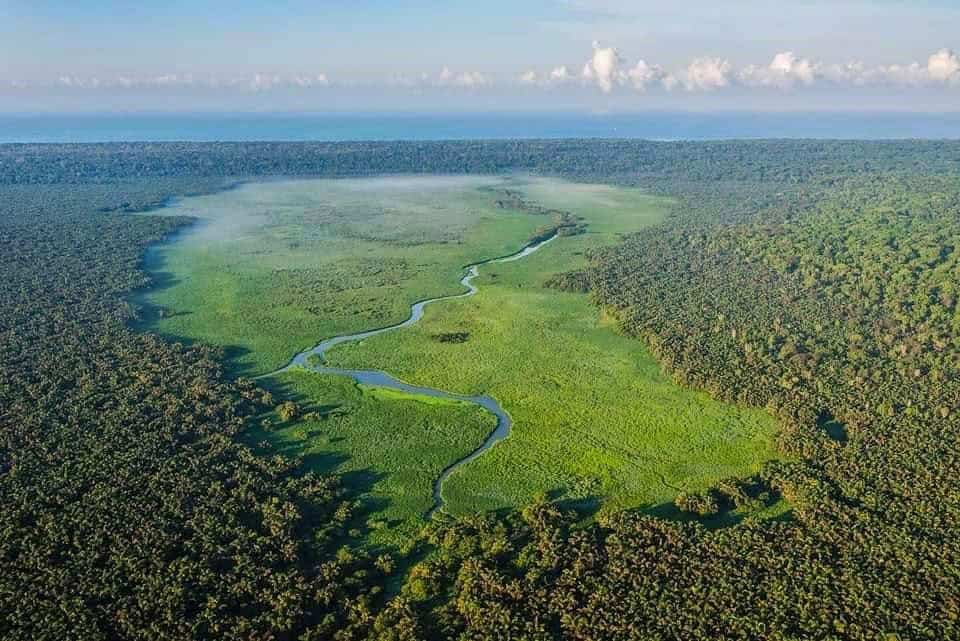Corcovado National Park is a remarkable site, home to rare species of plants and animals, many of which are unique to the area and protected there. It hosts the world’s largest populations of the Turquoise Cotinga (Cotinga ridgwayi), the Yellow-billed Cotinga (Carpodectes antoniae), and the Mangrove Hummingbird (Chrysuronia boucardi). It is also the habitat of the Black-faced Ant-Tanager (Habia atrimaxillaris), the smallest orchid in Costa Rica (Platystele tica), and the tallest tree species in all of Central America (Huberodendron allenii).
According to the University of Costa Rica (UCR), one hectare of forest on the Osa Peninsula contains more tree species than a similar area in the Brazilian Amazon. This includes true giants such as the emblematic black garlic (Anthodiscus chocoensis), the camíbar (Copaifera camibar), and the recently discovered black guapinoles (Hymenaea osanigraseminae and Prioria peninsulae).
The park protects the largest continuous and highest-quality stretch of Pacific Rainforest, an endangered ecosystem located in a narrow strip spanning southern Costa Rica and western Panama. UCR biologists consider it a sensitive and vulnerable ecosystem, noting that the Osa Peninsula is home to more than 3% of the planet’s biodiversity.
The UCR Biology faculty emphasizes that new species continue to be discovered in the forests of Corcovado National Park. Between 1990 and 2005, extensive scientific efforts led to the description of 57 new plant species on the Peninsula, 52 of which are endemic, meaning they exist nowhere else in the world.
Corcovado National Park and the Osa Peninsula have received numerous international recognitions and awards. Among them, BirdLife International and its partners designated Corcovado as an “Important Bird Area” on a global scale.
Similarly, the prestigious National Geographic Society has named Corcovado the most biologically intense place on Earth. “This represents extraordinary recognition for our country, but also an enormous conservation responsibility that all Costa Ricans share,” stated the UCR.
UCR specialists stress that Corcovado National Park urgently needs further protection, warning that without additional conservation initiatives, the park’s biodiversity could face significant threats.






